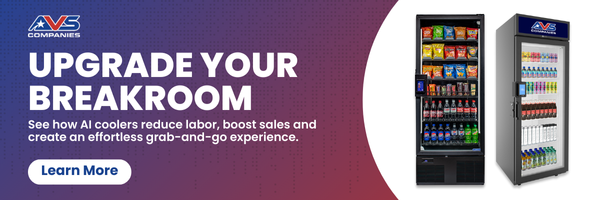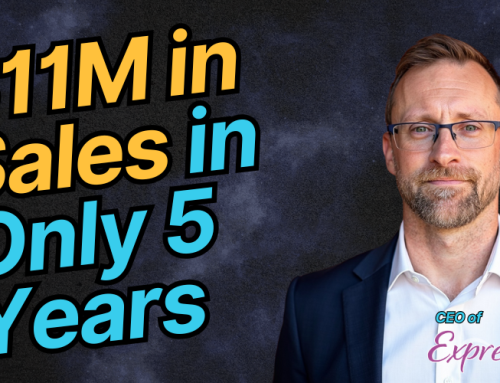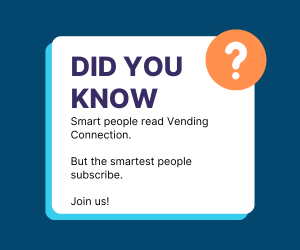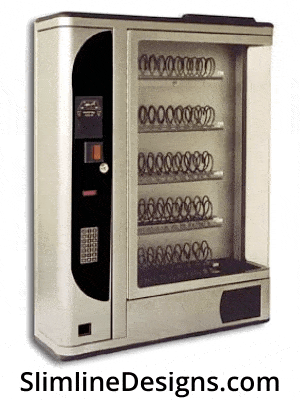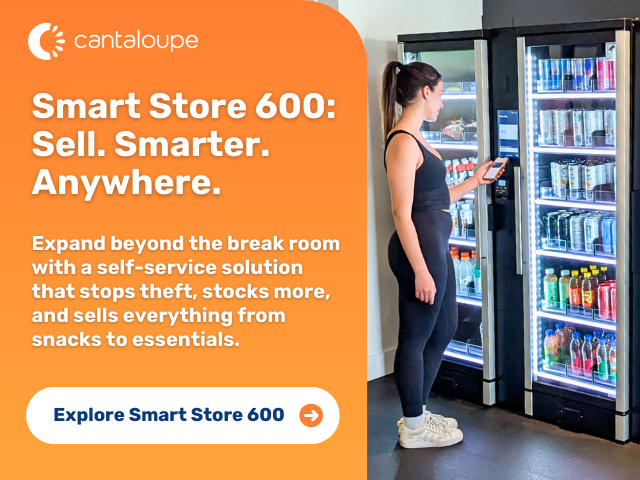
In just two and a half years, Boston entrepreneur David Keach built Snack Squad Vending from scratch into a thriving small business with 20 accounts and more than 30 machines — before successfully selling it to a larger operator after generating $150,000 in annual revenue. His journey is a case study in grit, creativity, and the kind of work ethic that defines successful operators in the vending industry.
An Entrepreneur Since Childhood
David’s entrepreneurial instincts showed up early. At nine years old, while most kids were sitting at traditional lemonade stands, David was wheeling around a handmade cart. “It didn’t look great — I built it myself — but I was bringing the lemonade right to people’s doors,” he remembers. “That’s last-mile delivery at nine years old.”
The lesson stuck with him: convenience and customer service matter. That idea of “white-glove service” would later be central to how he approached vending. “If you don’t maintain relationships with your clients, someone else will,” he says. “In this business, if you slack off, another vendor will be knocking on that door the next day.”
From Construction to a Vending Business
David spent his teen years and early twenties in construction, building homes. He also worked in logistics, learning the grind of operations and supply chain. These jobs instilled the work ethic that vending demands.
“I realized I was working long hours and making money for someone else,” he says. “I figured if I was going to work that hard, I’d rather do it for myself.”
He saved up around $17,000 and began researching business models. Convenience stores, gyms, and other brick-and-mortar concepts were considered, but they came with high costs and risk. “Vending made sense because you can spread the risk. If one location doesn’t work, you just move the machine.”
The Laundromat Account and “Tuition”
David’s first break was a laundromat with a neglected Sega combo machine. It had two boxes of Cracker Jacks sitting stale inside. He negotiated to take it over for $45 a month. “I tested it first by putting in a dollar — it barely worked. But I thought, okay, I’ll figure this out.”
He did, teaching himself to repair the coin mechanism. The account lost him about $500 overall, but he calls it “tuition” — the cost of learning how to be an operator.
His second laundromat was better and became one of his favorite accounts. Though he agreed to terms that were far too generous ($100 monthly plus 15% commission), it gave him valuable experience, recurring revenue, and confidence.
Scaling Fast with Four Machines a Month
From there, David set himself a bold goal: four machines per month. He leaned on “the maestros” — veteran operators in his area — to find reliable used equipment and help with installations.
By the end of his first year, he had multiple laundromats and two large gyms. One gym’s Bev Max drink machine alone produced $3,000 to $4,000 per month. “That machine was like a concession stand,” he says. “It was a big breakthrough.”
The Reality: More Side Gigs, 100 Hour Weeks, and Broken Cars
But vending wasn’t easy. David supplemented his income with Uber, DoorDash, and GrubHub during those early months. He often worked 80 to 100 hours a week. His vehicles suffered the most.
He burned through three cars: a manual Honda CR-V, a Pontiac Vibe, and finally a Toyota Sienna with its seats ripped out for cargo space. “I’d hide my beat-up car around the corner from clients,” he laughs. “But the choice was clear: spend money on a truck, or on more machines. I picked machines.”
The wear and tear was intense. At one point, he was racking up 1,000 miles a week. Mechanics became part of his routine. Yet, he kept pushing — because every dollar went back into growth.
Learning the Product Game
Stocking machines proved just as challenging as acquiring accounts. Early on, David relied heavily on BJ’s Wholesale because it was nearby and convenient. He soon learned about the tug-of-war between decision-makers who wanted “healthy options” and customers who wanted candy bars and chips.
“You always hear ‘we want healthy items,’ but people keep buying Snickers!” he says. Still, he used longer-shelf-life snacks like veggie straws or popcorn to keep machines looking full and reduce spoilage at slow accounts.
When hot products came along, David hustled. Prime Hydration, for example, was nearly impossible to find at one point. “I was in the back rooms of Target asking if they had shipments. That drink helped me land and keep accounts.”
He also dealt with the headaches of sourcing pastries and energy drinks — often the hardest products to find. Over time, he built connections with specialty suppliers, including local “cake bosses” for pastries, which helped him stabilize offerings.
Building a Posse
Instead of relying heavily on technology, David leaned on relationships. About 70% of his machines had credit card readers, but he never fully adopted telemetry or route optimization. Instead, he memorized sales patterns and adapted through experience.
More important was his network. The refurbisher, the delivery guy, and the local “maestro” formed what David calls his “posse.” “Everyone got paid, everyone had a role. That’s how I was able to grow as fast as I did.”
Hitting the Capital Wall
By year two, Snack Squad Vending had 20 accounts and 32 machines. David was making a living, but the business needed more capital to scale. Trucks, warehouses, and higher-volume purchasing all loomed ahead.
“I was living off the business but couldn’t grow it further without loans or outside money,” he admits. “That’s when I knew it was time to sell.”
Exit and Reflection
Through Vending Connection, David connected with a larger Boston operator and sold the business in a smooth transition. He supported the buyer during the handover and walked away proud.
“I went from nothing to a business worth selling in just two and a half years,” he says. “It was real entrepreneurship — learning on the fly, making mistakes, and figuring it out.”
5 Lessons for Aspiring Vending Operators
David’s experience offers practical advice for those looking to jump into the industry:
- Start with accounts, not machines. Don’t buy equipment until you know what’s needed.
- Persistence wins. Expect 99 rejections before landing one client.
- Stock smart. Healthy items are nice, but know what actually sells.
- Use relationships. Local mentors and vendors are invaluable.
- Plan for capital. Growth requires vehicles, equipment, and cash reserves.
What’s Next
Today, David is taking time to travel — something vending never allowed. He’s also begun advising a new operator, sharing the lessons he learned. “I wouldn’t call myself the maestro yet,” he says with a grin, “but I want to help others avoid the mistakes I made.”
Snack Squad may have been short-lived, but its story is proof that with grit, adaptability, and customer focus, an operator can go from zero to a valuable exit in just a few years.

